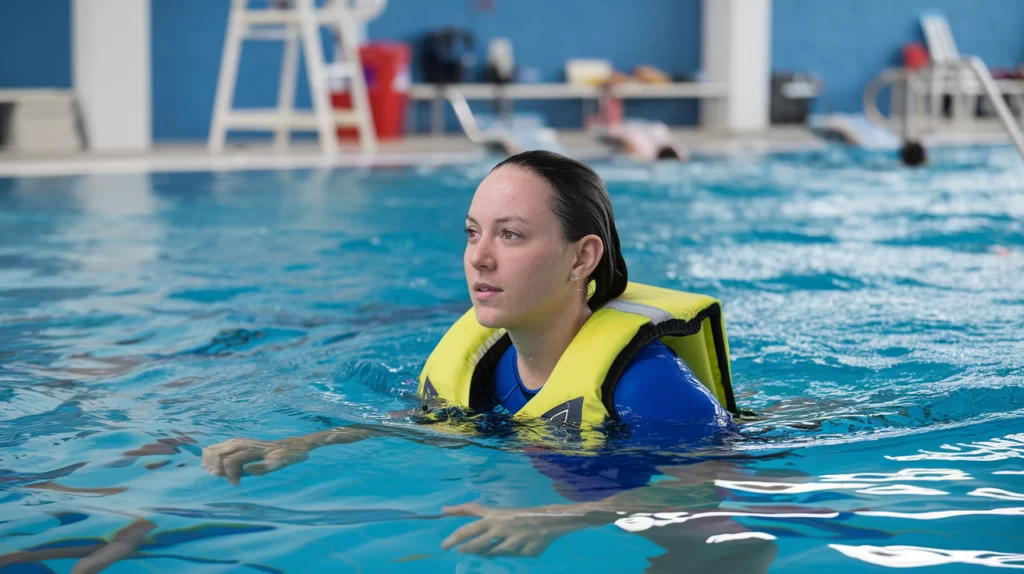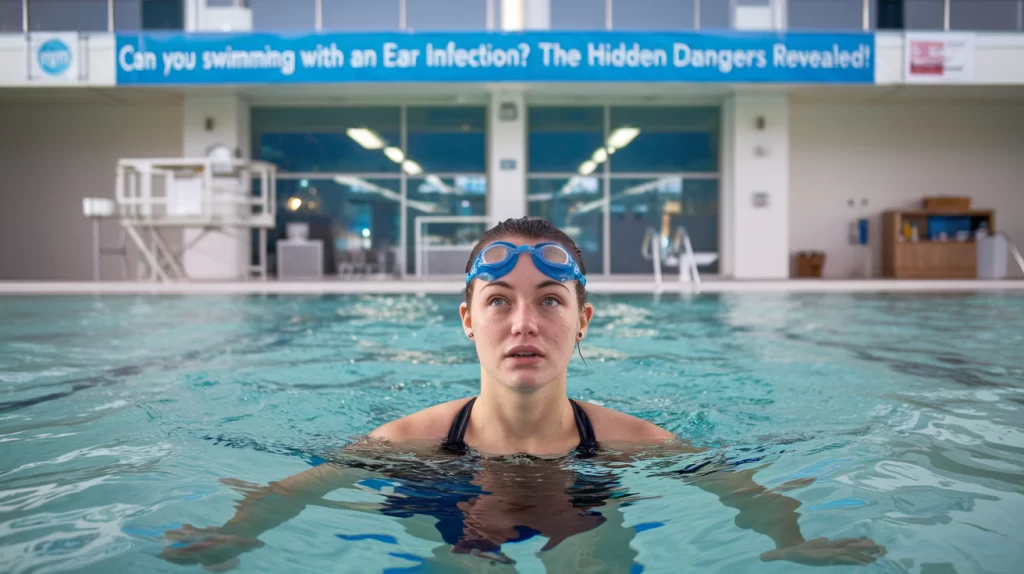Table of Contents
Swimming is a favourite activity for many, especially during the warm summer months. However, if you’re dealing with an ear infection, you might wonder, “Can you go swimming with an ear infection?” This is a crucial question because, while swimming can be refreshing, it may pose serious risks if you have an ear infection. In this article, we’ll explore the hidden dangers of swimming with an ear infection, provide valuable tips for protecting your ears, and help you decide whether taking the plunge is worth the risk.
Can You Go Swimming with an Ear Infection? What is an Ear Infection?

An ear infection occurs when bacteria or viruses invade the ear, leading to inflammation and pain. Ear infections are common, especially in children, but adults can suffer from them too. The most common types of ear infections include otitis externa (outer ear infection), often called swimmer’s ear, and otitis media (middle ear infection). Both types can cause discomfort, and swimming with an ear infection can make things worse.
Symptoms of an Ear Infection
Can You Go Swimming with an Ear Infection? Recognizing the symptoms of an ear infection is essential before you even consider swimming. Common symptoms include:
- Ear pain or discomfort
- A feeling of fullness in the ear
- Fluid drainage from the ear
- Hearing difficulties
- Itching in the ear canal
- Fever, especially in children
If you’re experiencing any of these symptoms, addressing them before diving into the pool is crucial.
Can You Go Swimming with an Ear Infection? Can You Go Swimming with an Ear Infection?
Now that you understand an ear infection, let’s dive into the question: Can you swim with an ear infection? The simple answer is it’s not recommended. Swimming with an ear infection can lead to various complications, making your condition worse rather than better.
The Risks of Swimming with an Ear Infection
Can You Go Swimming with an Ear Infection? Swimming with an ear infection can introduce bacteria and other harmful microorganisms into your ear, potentially worsening the disease. Water, especially in pools, lakes, and oceans, can carry bacteria that can quickly enter the ear and cause further irritation and infection.
- Worsening the Infection: Introducing more bacteria into the ear can exacerbate the infection, leading to increased pain, swelling, and drainage.
- Prolonging Recovery: Swimming with an ear infection can delay the healing process. Your ear needs time to recover, and exposure to water can hinder that process.
- Risk of Ear Drum Damage: In severe cases, swimming with an ear infection can lead to a ruptured eardrum. This occurs when the pressure in the ear becomes too intense, causing the eardrum to tear.
Can You Go Swimming with a Middle Ear Infection?
Can You Go Swimming with an Ear Infection? A middle ear infection, also known as otitis media, affects the area behind the eardrum. Swimming can be hazardous if you’re dealing with a middle ear infection. The pressure changes that occur while swimming, significantly diving, can worsen the disease and cause additional pain.
Can You Go Swimming with Swimmer’s Ear?
Ironically, a swimmer’s ear is an ear infection often caused by swimming. It affects the outer ear canal and is usually the result of water remaining in the ear after swimming. If you already have a swimmer’s ear, getting back in the water can worsen the condition and prolong recovery.
Tips for Protecting Your Ears

Can You Go Swimming with an Ear Infection? If you love swimming but are dealing with an ear infection, there are steps you can take to protect your ears and reduce the risk of complications.
1. Avoid Swimming Until Healed: The best way to protect your ears during an ear infection is to avoid swimming until your ear has fully healed. This allows your ear to recover without the risk of further irritation.
2. Use Earplugs: If you must swim, consider using earplugs designed for swimmers. These can help keep water out of your ears, reducing the risk of the infection worsening. Make sure the earplugs fit snugly to prevent water from seeping in.
3. Dry Your Ears Thoroughly: Drying your ears completely is crucial after swimming. After carefully drying the outer ear with a towel, tilt your head to either side to gently let the water out. Avoid using cotton swabs, which can push water deeply into the ear canal.
4. Consult a Doctor: It’s wise to consult a doctor before swimming with an ear infection. They can assess the severity of your disease and provide personalized advice on whether swimming is safe for you.
Alternatives to Swimming

If you’re dealing with an ear infection but don’t want to miss out on water activities, consider these alternatives:
- Water Aerobics
Water aerobics allows you to stay active without submerging your head. This reduces the risk of water entering your ears while enjoying aquatic exercise’s benefits.
- Swimming with a Head Above Water
Make an effort to keep your head above water if you must swim. This can reduce the risk of water entering your ears and worsening your infection.
- Swimming in Chlorinated Pools
While swimming with an ear infection is generally not recommended, swimming in a well-maintained, chlorinated pool may reduce the risk of bacterial contamination. However, this is still not guaranteed, and caution should be exercised.
When Is It Safe to Swim Again?
The next question that naturally follows is, “When can you go swimming with an ear infection that has healed?” The answer depends on the severity of your infection and your doctor’s advice. It would help to wait until all symptoms were resolved before returning to the water. This ensures that your ear is fully healed and reduces the risk of re-infection.
Also Read: How Much Narcan Can You Give? Vital Doses to Save Lives!
Signs Your Ear Infection Has Healed
- No more ear pain or discomfort
- A typical hearing has returned
- No fluid drainage from the ear
- No itching or irritation in the ear canal
If you’re unsure whether your ear infection has fully healed, consult your doctor before swimming.
Can you go swimming with an ear infection? The risks outweigh the benefits. Swimming with an ear infection can introduce harmful bacteria, worsen your condition, and prolong recovery. To protect your ears and ensure a full recovery, avoiding swimming until your ear infection has healed completely is best. If you’re unsure whether it’s safe to swim, consult a doctor for personalized advice. Remember, taking care of your health should always come first, even if it means staying out of the water for a little while.



